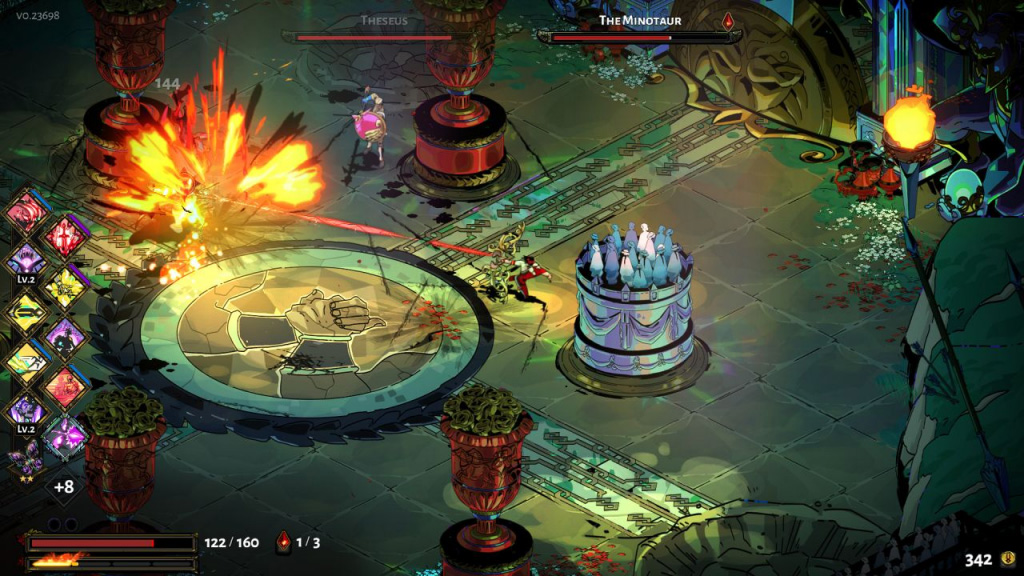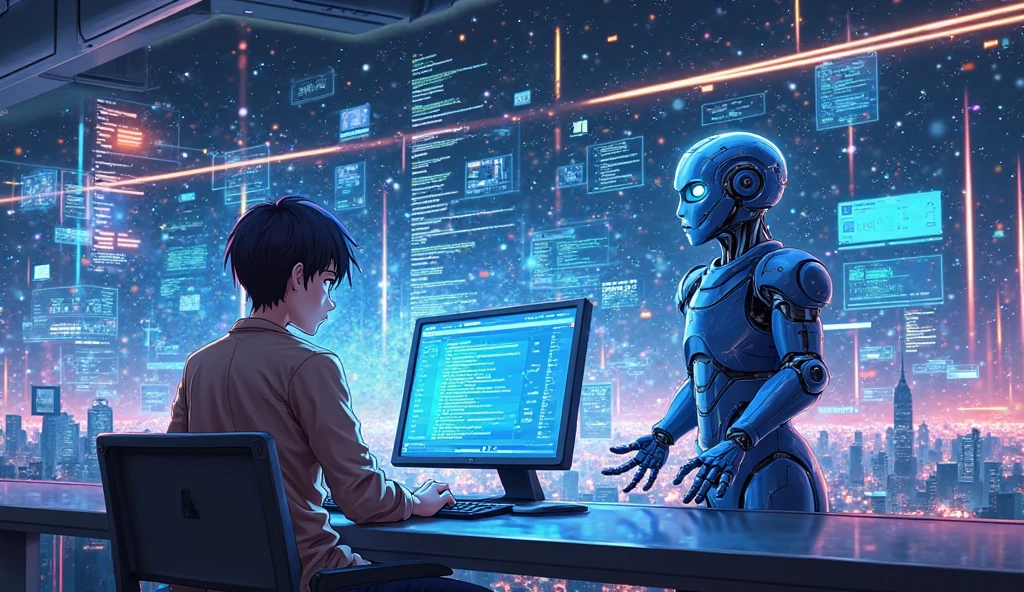The Future of Video Game Development with Improvements in AI

Writer
Baha Pirani From Blacave

The video game industry has always been at the forefront of technological innovation, and the rapid advancements in artificial intelligence (AI) are poised to revolutionize game development in ways we could only imagine a decade ago. From procedural content generation to intelligent NPCs (non-player characters), AI is reshaping how games are designed, developed, and experienced. As we look to the future, the integration of AI into game development promises to unlock unprecedented creativity, efficiency, and player engagement.
Procedural Content Generation: Infinite Worlds at Your Fingertips
One of the most exciting applications of AI in game development is procedural content generation. AI algorithms can now create vast, dynamic worlds with minimal human intervention. Games like No Man’s Sky have already demonstrated the potential of procedural generation, but AI is taking this concept to the next level. By leveraging machine learning, developers can generate not only landscapes but also intricate storylines, quests, and even music tailored to the player’s actions.
For example, AI tools like Promethean AI assist developers in building realistic environments by automating tasks such as asset placement and level design. This not only speeds up development but also allows for more diverse and immersive game worlds. As AI continues to improve, we can expect games to offer truly unique experiences for every player, ensuring no two playthroughs are the same.

An example of procedural level generation in Hades
Smarter NPCs: Bringing Characters to Life
Non-player characters have come a long way from their scripted, predictable behaviors. With AI, NPCs can now exhibit complex, human-like behaviors, making interactions more engaging and realistic. Machine learning models enable NPCs to learn from player actions, adapt to different playstyles, and even develop their own personalities over time.
For instance, AI-driven NPCs in games like The Elder Scrolls V: Skyrim (with mods) or Red Dead Redemption 2 showcase advanced decision-making and emotional responses. Companies like Inworld AI are developing platforms that allow developers to create NPCs with natural language processing capabilities, enabling real-time, dynamic conversations with players. This level of immersion will redefine storytelling in games, making narratives more interactive and personalized.

Nvidia Ace project
Streamlined Development Processes
AI is also transforming the technical side of game development. Tools like Unity’s ML-Agents and Unreal Engine’s AI systems empower developers to prototype and test game mechanics more efficiently. AI can automate repetitive tasks such as bug detection, asset optimization, and even code generation, freeing up developers to focus on creativity and innovation.
Moreover, AI-powered analytics tools can analyze player behavior to provide insights into game design. By understanding how players interact with their games, developers can fine-tune mechanics, balance difficulty, and enhance user experiences. This data-driven approach ensures that games are not only fun but also tailored to the preferences of their audience.

Analyzing, testing and debugging are much faster by using AI
Personalized Gaming Experiences
AI is enabling hyper-personalized gaming experiences by adapting games in real-time to suit individual players. For example, AI can adjust difficulty levels, recommend in-game content, or even modify storylines based on a player’s preferences and skill level. This level of customization ensures that games remain challenging and enjoyable for players of all backgrounds.
Platforms like Google’s Stadia and NVIDIA’s GeForce NOW are already using AI to optimize game streaming, reducing latency and improving visual quality. As AI continues to evolve, we can expect even more sophisticated personalization, making gaming more accessible and enjoyable for everyone.

An example of automatic difficulty adjustment is fallout
Ethical Considerations and Challenges
While the future of AI in game development is bright, it also raises important ethical questions. Issues such as data privacy, algorithmic bias, and the potential for AI to replace human jobs in the industry must be addressed. Developers and policymakers will need to work together to ensure that AI is used responsibly and ethically.
Conclusion
The future of video game development is undeniably intertwined with the advancements in AI. From creating infinite worlds to crafting intelligent NPCs and streamlining development processes, AI is set to redefine what games can be. As these technologies continue to evolve, the possibilities for innovation are limitless. However, it is crucial to navigate this future with a focus on ethical practices and inclusivity, ensuring that the benefits of AI are shared by all.
References and Learn
Unity ML-Agents
Inworld AI
Promethean AI

Writer
Baha Pirani From Blacave









